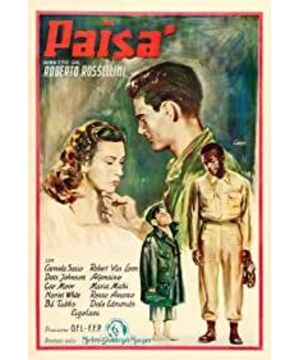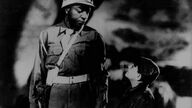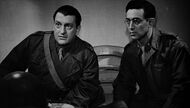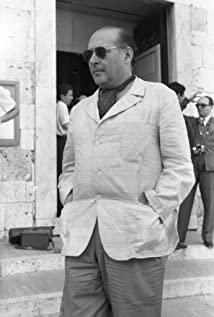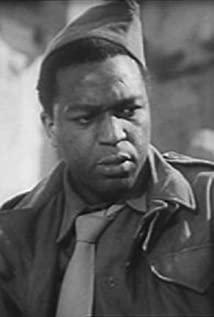No matter how many war epics and sensational movies you have seen, you will be moved by Roberto Rossellini's "War of Fire". In fact, the more you watch the grand narratives of war, the more you will be moved by a movie like Fire of War. Because "War" is the flagship of the Italian neo-realism film, it is real and objective, and it contains profound insights and broad feelings in the ordinary. Filmed in 1946, the film uses six stories to depict the panorama of Italian society before and after the victory of World War II in 1943-44. At this time, the US troops landed in Italy, and together with the guerrillas, they fought with the Germans and Italian fascists on the peninsula. The film does not reflect the confrontation between the forces of good and evil like Rossellini's previous work, "Rome, the Undefended City," but instead focuses on the struggle between the liberators (the U.S. military) and the liberated (the Italian people). Complex relationships, and in the conflict of cultures and religions formed in this special historical background, reveal the gleam of kindness in the depths of human nature. This shimmer is like the faint glow in the dark from the lighter in the hand of American soldier John in the opening story. He sat in the dark with an Italian girl he didn't know and didn't speak the language trying to communicate, and lit a lighter to try to let the girl see pictures of his mother and sister. As a result, the dim light in his hand caused a bullet from the German soldier. Both the girl and the girl were killed by German guns. John's companions found him, looking at his body, they mistook him for being shot by an Italian girl, swearing "This Italian bitch!" The curse "This Italian bitch" suddenly turned the story The idea is raised to a new height--- It no longer just depicts how the kindness in human nature is crushed by the war machine, it reveals the gap and block between the liberator and the liberated. This estrangement and blocking can be about love. The story of the American soldier and the Italian prostitute in the movie was originally an old-fashioned plot that forced the prostitute in difficult times, but it became a sad and poignant love story because of the drama arrangement. Separation and blocking can also be about religion. The story of the monastery in the film is a direct reference to the conflict between religious denominations. This traditionally closed Catholic monastery barely survived the war, and the monks could only use their faith to deal with hunger. At this time three American military chaplains came, bringing food and chocolate, and the panic caused by paganism (Protestantism, Judaism). The monks hurriedly announced: Protestant and Jewish priests have come to the monastery! This scene can not help but make people smile. In the end, the U.S. military chaplain stood up at the dinner, solemnly thanked the monks, and called for tolerance between the denominations. At this time, the fraternity theme of the film can be said to be fully revealed. Of course, the estrangement and blocking between the liberators and the liberated are not necessarily so profound, and they can also be simple and vivid. The story of "Stolen Shoes" tells the sympathy of the American soldier for the Italian orphan who stole his shoes, but the most touching is a conversation between him sitting on the ruins and the orphan when he is drunk. He fantasized about going back to America in the flowery world and having everything there as a hero: "Look! There are tall buildings in Manhattan below! They are all mine, because I am a hero!" But even the drunken soldier, He couldn't imagine all the way, and a realization interrupted him: none of this is true, "No, I don't want to go back, because my home is just a slum." This awakening of the American soldier perfectly explains the sympathy he gave to the Italian orphans later, because he saw himself in the poverty that the orphans experienced. That's the beauty of "War": life is not a movie, but Rossellini's film, with quiet scenes and a large number of non-professional actors, infinitely approaches the reality of life. His rationality and restraint make the film surprisingly powerful; and his speculation in the plain narrative makes the film stronger than reality. It is worth noting that the American soldier in the "Shoe Stealing" section of the movie kept calling the Italian orphan around him Paisa, which means "compatriot, fellow countryman" in Italian. The original title of "War" is Paisan, which actually pinned Rossellini's complex for his Italian compatriots. So I personally feel that the title of "War" should be translated into "Fellow" to be more authentic and accurate. put out. Of course, the estrangement and blocking between the liberators and the liberated are not necessarily so profound, and they can also be simple and vivid. The story of "Stolen Shoes" tells the sympathy of the American soldier for the Italian orphan who stole his shoes, but the most touching is a conversation between him sitting on the ruins and the orphan when he is drunk. He fantasized about going back to America in the flowery world and having everything there as a hero: "Look! There are tall buildings in Manhattan below! They are all mine, because I am a hero!" But even the drunken soldier, He couldn't imagine all the way, and a realization interrupted him: none of this is true, "No, I don't want to go back, because my home is just a slum." This awakening of the American soldier perfectly explains the sympathy he gave to the Italian orphans later, because he saw himself in the poverty that the orphans experienced. That's the beauty of "War": life is not a movie, but Rossellini's film, with quiet scenes and a large number of non-professional actors, infinitely approaches the reality of life. His rationality and restraint make the film surprisingly powerful; and his speculation in the plain narrative makes the film stronger than reality. It is worth noting that the American soldier in the "Shoe Stealing" section of the movie kept calling the Italian orphan around him Paisa, which means "compatriot, fellow countryman" in Italian. The original title of "War" is Paisan, which actually pinned Rossellini's complex for his Italian compatriots. So I personally feel that the title of "War" should be translated into "Fellow" to be more authentic and accurate. put out. Of course, the estrangement and blocking between the liberators and the liberated are not necessarily so profound, and they can also be simple and vivid. The story of "Stolen Shoes" tells the sympathy of the American soldier for the Italian orphan who stole his shoes, but the most touching is a conversation between him sitting on the ruins and the orphan when he is drunk. He fantasized about going back to America in the flowery world and having everything there as a hero: "Look! There are tall buildings in Manhattan below! They are all mine, because I am a hero!" But even the drunken soldier, He couldn't imagine all the way, and a realization interrupted him: none of this is true, "No, I don't want to go back, because my home is just a slum." This awakening of the American soldier perfectly explains the sympathy he gave to the Italian orphans later, because he saw himself in the poverty that the orphans experienced. That's the beauty of "War": life is not a movie, but Rossellini's film, with quiet scenes and a large number of non-professional actors, infinitely approaches the reality of life. His rationality and restraint make the film surprisingly powerful; and his speculation in the plain narrative makes the film stronger than reality. It is worth noting that the American soldier in the "Shoe Stealing" section of the movie kept calling the Italian orphan around him Paisa, which means "compatriot, fellow countryman" in Italian. The original title of "War" is Paisan, which actually pinned Rossellini's complex for his Italian compatriots. So I personally feel that the title of "War" should be translated into "Fellow" to be more authentic and accurate. The speculative sustenance in the narrative gives the film more power than reality. It is worth noting that the American soldier in the "Shoe Stealing" section of the movie kept calling the Italian orphan around him Paisa, which means "compatriot, fellow countryman" in Italian. The original title of "War" is Paisan, which actually pinned Rossellini's complex for his Italian compatriots. So I personally feel that the title of "War" should be translated into "Fellow" to be more authentic and accurate. The speculative sustenance in the narrative gives the film more power than reality. It is worth noting that the American soldier in the "Shoe Stealing" section of the movie kept calling the Italian orphan around him Paisa, which means "compatriot, fellow countryman" in Italian. The original title of "War" is Paisan, which actually pinned Rossellini's complex for his Italian compatriots. So I personally feel that the title of "War" should be translated into "Fellow" to be more authentic and accurate.
View more about Paisan reviews


